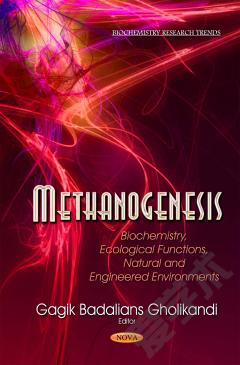Methanogenesis: Biochemistry, Ecological Functions, Natural and Engineered Environments
Methanogenesis or biomethamation is a very impressive phenomenon which has noticeable effects on both natural and engineered environments. This process is held by methanogens, which produce methane as the major end product of their metabolism in a unique energy-generating process. The organisms received much attention because they catalyze the terminal step in the anaerobic breakdown of organic matter under sulfate-limiting conditions and are essential for both the recycling of carbon compounds and the maintenance of the global carbon flux on Earth. Furthermore, methane is an important greenhouse gas that directly contributes to climate changes and global warming. Hence, the understanding of the biochemical processes leading to methane formation is of major interest. This book focuses on the methanogenesis processes in natural and engineered environments with emphasis on mechanism recognition, modeling and resource management as well as its ecological impacts. The aim of this book is to examine methanogenesis from different points of view, describing scientific methods to minimize its hazardous impacts, providing an assessment of the existing technologies, and highlighting various aspects of bio-fuel production and cogeneration in seven chapters which have been prepared by authors from completely different professional areas and majors.
{{comment.content}}








 京公网安备 11010802027623号
京公网安备 11010802027623号